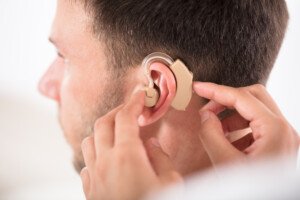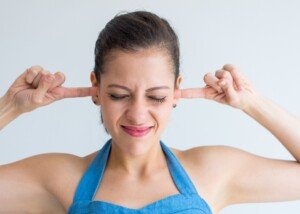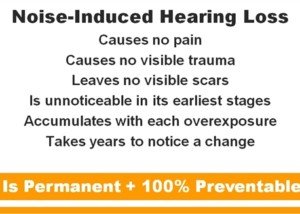
It’s understandable if a CPAP user is concerned about the machine’s noise or pressure causing hearing loss.
The incidence of hearing loss cases among CPAP users is inversely out of proportion to the number of CPAP users who worry about hearing loss from the noise or pressure.
What that means is this: CPAP therapy can cause hearing loss, but it is so rare that it does not justify worrying over it, and certainly does not validate avoiding use of this therapy for sleep apnea treatment.
A Case Study of Hearing Loss from CPAP
A 50-year-old man was found to have sudden-onset hearing loss – caused by his CPAP machine – but only because he self-titrated it – all the way up to the maximum possible level!
As a result he suffered otic barotrauma. So the question then becomes, how many people get hearing loss from CPAP who do NOT self-titrate, or at least, self-titrate responsibly instead of excessively, as did this particular patient?
A report in The Ochsner Journal, summer 2016, points out that there exist rare, possible side effects on the ear structure and function from CPAP use.
The paper also mentions that barotrauma from CPAP therapy has not been widely documented.
CPAP indeed increases pressure within the middle ear cavity, but there are only a handful of cases reported in literature describing hearing loss resulting in some way from CPAP increasing middle ear pressure.
If you misuse a medical device, this heightens the risk of adverse side effects.
“That’s why proper pressure adjustment through titration is essential,” says Michael Trufant, sleep therapy manager with Aeroflow Industrial Clinic which specializes in providing sleep studies, CPAP treatment options and quality care to sleep apnea patients nationwide.
Trufant explains, “If your CPAP machine is increasing pressure in your ears, the settings may need to be adjusted.
“Your machine’s pressure settings might be too high, so speak with your physician about adjusting your settings to a more comfortable level.”
What about hearing loss from CPAP noise?
Trufant explains, “In terms of hearing loss, CPAP machines range from 26-30 decibels, and that level should not cause any damage to your hearing.
“Over time, the sound of your machine will become more of a constant white noise.”
If your machine is noisy or seems loud, see your DME; something is probably wrong with the device.
“You can listen to sounds at 70 dBA or lower for as long as you want,” says the American Speech-Language-Hearing Association’s site.
A dB range of 26-30 is actually pretty low. The Association describes it as a “whisper” or “quite library.”
Double that level, and the Association compares it to “typical conversation, dishwasher, clothes dryer.”
So you see, the noise from a well-operating CPAP machine cannot possibly cause hearing loss, even if you use the device 40 hours a week.
Loud Snoring: More Threatening to Hearing than a CPAP Machine
On average, snoring comes in at 60-90 dB. However, there are cases of louder snoring.
Not only can this adversely affect the snorer’s ears, but their bed partner won’t be immune to it either.
A 2009 Daily Mail article reports that then-60-year-old Jenny Chapman snored at 111 dB.
Both she and her husband are at high risk for permanent hearing loss because neither wears ear protection.
If you’re still concerned about CPAP noise even though your machine functions properly, custom-made earplugs or even store-bought ones will reduce the volume going into your ears.










































